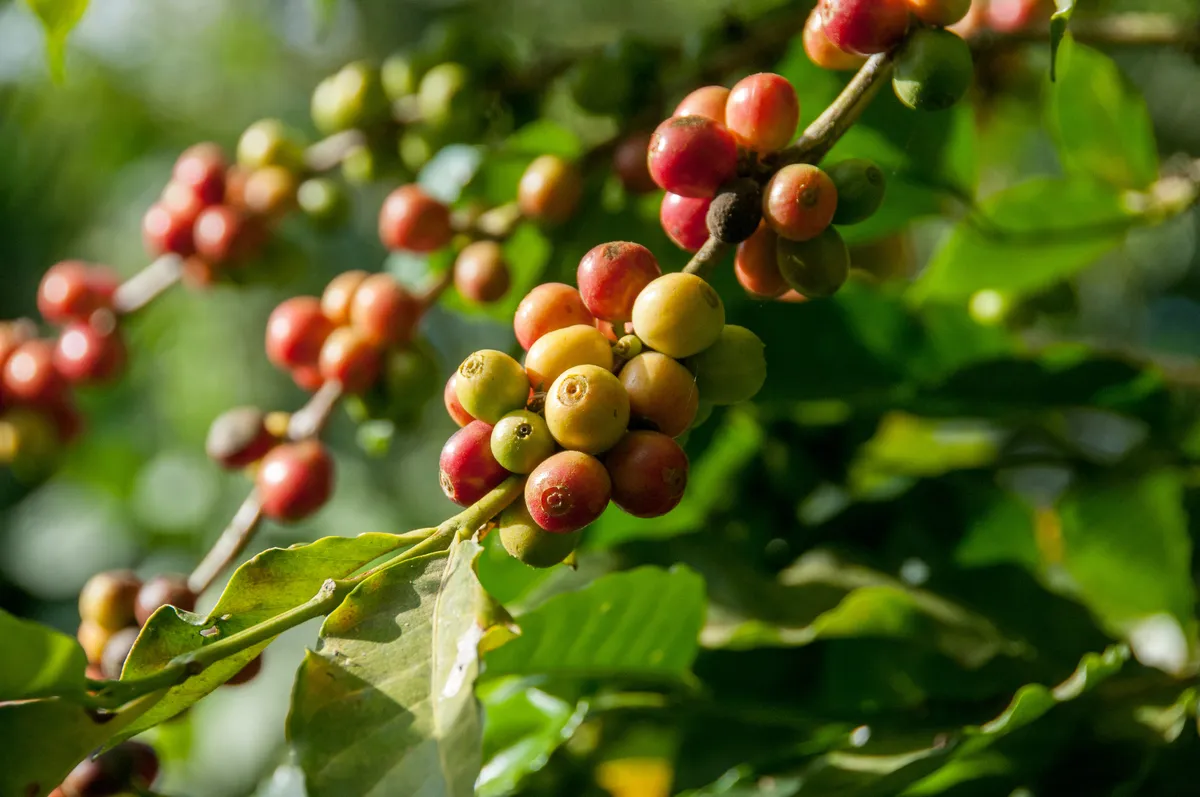Coffee: Aromatic Elixir of Energy and Delight
coffee29-06-2023

Coffee, with its enticing aroma and invigorating taste, has become an integral part of many people’s daily lives. This caffeinated beverage has a rich history, a global following, and a myriad of health benefits. In this essay, we will explore the fascinating world of coffee and delve into its origins, cultural significance, and the various ways it can be enjoyed.
Origins and Cultivation
Coffee, scientifically known as Coffea, is derived from the seeds of the Coffea plant. The story of coffee’s discovery traces back to ancient times in Ethiopia. According to popular folklore, a goat herder named Kaldi noticed his goats becoming more energetic after consuming the red berries of a certain plant. Intrigued, he decided to try them himself and experienced a surge of energy. This serendipitous encounter led to the cultivation of coffee plants and the eventual spread of coffee throughout the world.
Today, coffee is grown in diverse regions around the globe, including South America, Central America, Africa, and Asia. The cultivation process involves nurturing the plants in suitable climates, ensuring adequate rainfall, shade, and proper harvesting techniques. Coffee beans are typically hand-picked to ensure the highest quality. Once harvested, the beans undergo processing, roasting, and grinding before they are ready to be brewed.
Cultural Significance and Rituals
Coffee has embedded itself in various cultures, giving rise to unique rituals and traditions. In many countries, it is not merely a beverage but a symbol of hospitality, friendship, and socialization. The art of brewing and serving coffee has become a cultural heritage in nations such as Italy and Turkey, where the preparation process is an intricate dance of precision and tradition.
In Italy, the birthplace of espresso, coffee is an essential part of daily life. Italians savor their espresso shots at a local café, engaging in animated conversations or taking a moment of respite. Similarly, in Turkey, the traditional brewing method called “Turkish coffee” involves simmering finely ground coffee in a special pot called a cezve. The coffee is then served in small cups accompanied by sweet treats, while fortunes are read from the coffee grounds.
Health Benefits and Varied Enjoyment
Aside from its captivating taste and cultural significance, coffee offers a range of health benefits. Moderate consumption of coffee has been associated with increased alertness, improved cognitive function, and enhanced athletic performance. Moreover, coffee contains antioxidants that contribute to overall well-being and may help reduce the risk of certain diseases, including type 2 diabetes and Parkinson’s disease.
Coffee enthusiasts have countless options to enjoy this beverage, catering to individual tastes and preferences. From classic black coffee to specialty drinks such as cappuccinos, lattes, and macchiatos, the possibilities are endless. Coffee can be customized with different syrups, milk alternatives, or even topped with a sprinkle of cinnamon or cocoa powder. Additionally, the emergence of cold brew and nitro coffee has offered refreshing alternatives for those seeking a chilled caffeine fix.
Conclusion
In conclusion, coffee has transcended its humble beginnings to become a beloved global beverage. Its journey from the coffee plant to our cups involves meticulous cultivation, roasting, and brewing processes. Coffee is deeply intertwined with the customs and traditions of numerous cultures, serving as a catalyst for social interactions. Moreover, coffee offers a myriad of health benefits and a wealth of options for customization and enjoyment. Whether one seeks a jolt of energy, a moment of relaxation, or a delightful companion during conversations, coffee remains a cherished elixir that continues to captivate our senses and fuel our passions.


